GLOUCESTER, MA – Open enrollment for health insurance under the Affordable Care Act (ACA) starts Nov. 15 and runs through Feb. 15, 2015. Signing up means getting health care coverage and avoiding tax penalties, too.
As part of the ACA, trained and certified “navigators” offer free assistance with the application process and provide information on the different types of insurance plans and subsidies available to help pay for them.
In Massachusetts and Maine, some of those navigators are specifically designated to help fishermen and their families find and obtain affordable health care.
This year, the Massachusetts Health Connector awarded Fishing Partnership Support Services a $110,000 grant to expand the services provided by its navigators, who operate out of offices in New Bedford, Chatham, Gloucester, and Scituate. Fishing Partnership Support Services also receives grants in Maine where it works closely with the Maine Lobstermen’s Association to fund two certified navigators.
Twenty years ago, the Massachusetts Fishermen’s Partnership (MFP) was formed to bring together fishing communities with a single shared goal: getting fishermen and their families health insurance. In fact, the resulting Fishing Partnership Health Plan became a model for the Massachusetts Health Connector program, which started in 2006, and that, in turn, became the blueprint for the ACA, which went into effect last year.
One of Fishing Partnership Support Services’ longtime navigators is Angela Sanfilippo, who also serves as MFP executive director and as president of the Gloucester Fishermen’s Wives Association. She noted that Fishing Partnership Support Services also worked with the federal Department of Human and Health Services on the ACA program.
“We’re so lucky we live in Massachusetts where these things already exist,” she said.
At national health insurance meetings, Sanfilippo told of hearing about people who had no health insurance and had to claim bankruptcy or lost their homes due to the high cost of medical bills.
New Bedford-based navigator Deb Kelsey said the economic cost of not having health insurance is important to remember, particularly for young fishermen and those who are in generally good health.
“We ask them, ‘What happens if you have an accident and break your leg?’ It could cost $30,000 to go to a hospital that you would have to pay out of your own pocket,” she said. “We show them what a typical emergency room visit would cost without being insured.”
While the MFP no longer offers its own insurance plan, Kelsey said the next best thing was to assist fishermen and their families to make sure they get insurance, which is what Fishing Partnership Support Services does.
The Massachusetts Health Connector is the commonwealth’s insurance marketplace and offers four plans: bronze, silver, gold, and platinum. At the bronze level, monthly premiums are low but out-of-pocket costs such as deductibles are high. The deductible is the amount of medical costs a person must pay before insurance begins paying for services. At the platinum level, premiums are high but the out-of-pocket costs are low. Fishermen choose the plan that best suits their health needs, family size, and income.
Kelsey and the other Fishing Partnership Support Services navigators take questions over the phone and in person at their offices and on the docks. She said it helps that she comes from a fishing family herself.
“We know that there are certain issues that fishermen deal with like diabetes, breathing-related problems, high blood pressure, and other stress-related illnesses,” she said.
Fishing Partnership Support Services also promotes staying healthy by offering immunizations, and glucose and blood pressure screenings at fishing industry events throughout the region.
Navigators can help with everything from accessing the Health Connector website to filling out applications and explaining insurance terms to choosing a primary care physician.
“Another benefit to getting insurance through the Mass Health Connector is that it’s based on income. If your income decreases, you may be eligible for subsidies,” Kelsey said. “It’s good to know that if you’re out of work, you and your family can still have insurance.”
Maine and the ACA
For now, subsidies are not available in Maine, according to April Gilmore-McNutt, a navigator at the Maine Lobstermen’s Association. Maine chose to use a federally facilitated ACA marketplace to provide insurance plans. However, Maine opted out of expanding its state Medicaid program for the ACA in 2013, so there were some fishermen last year under certain circumstances who did not qualify for federal subsidies or Maine’s Medicaid, called MaineCare.
Numerous states fought the ACA in court, and last year the US Supreme Court overturned that part of the ACA that required states to expand their Medicaid programs to cover all low-income insurance enrollees.
Still, Gilmore-McNutt said that getting health care insurance is important.
Maine has three insurance plans similar to the first three offered through the Mass Health Connector, bronze through gold. Instead of a platinum plan, Maine has a catastrophic plan for those 30 years old and under in good health with a very low premium and high deductible. While it covers fewer office visits, it does cover those unexpected visits to the emergency room.
All health care plans, including the catastrophic plan, cover the 10 basic essential health benefits under the ACA. These include: ambulatory patient services; emergency services; hospitalization; maternity and newborn care; mental health and substance use disorder services, including behavioral health treatment; prescription drugs; rehabilitative and habilitative services and devices; laboratory services; preventive and wellness services and chronic disease management; and pediatric services, including oral and vision care.
Having insurance also protects fishermen from financial exposure.
“We knew there were a lot of fishermen and their families who were going to be in need of this service,” said Gilmore-McNutt. “It did make a difference. Uninsured fishermen were able to find insurance and many families found much better coverage.”
Fishing Partnership Support Services navigators are ready, willing, and able to assist fishermen from states outside of Massachusetts and Maine, according to Chatham, MA-based navigator Morgan Parker.
“Anyone can call us and we can offer a referral,” she said. “A lot of our fishermen are transient and we can provide them with information about who to talk to in their home states.”
Visit the Fishing Partnership Support Services website at <www.fishingpartnership.org> to find out how to contact a navigator. You also can find more information about signing up for health care under the ACA online at <www.healthcare.gov>.
Joyce Rowley
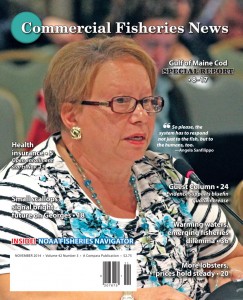
Read the rest and much, much more in the November issue of Commercial Fisheries News.
Read online immediately and download for future reference.


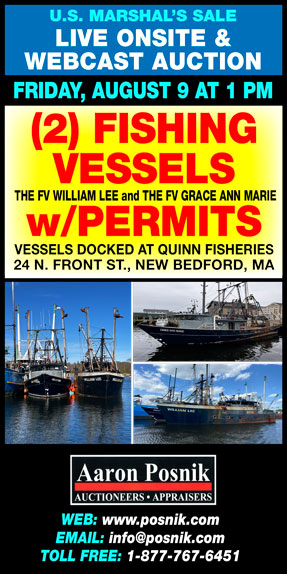
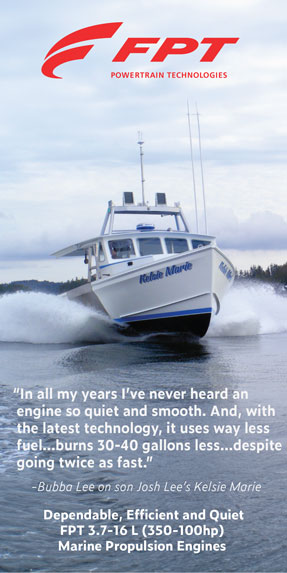
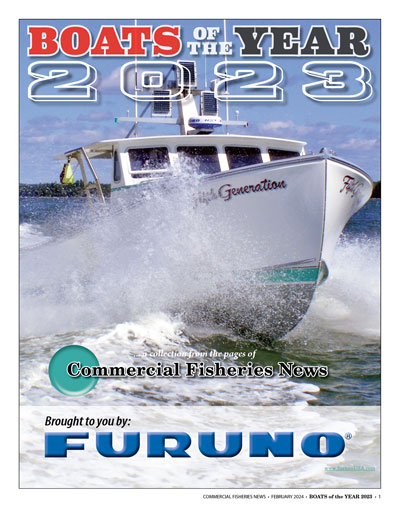
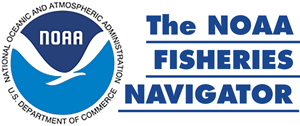

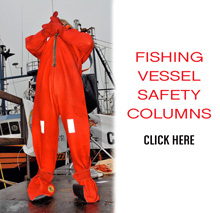
 Updating...
Updating...